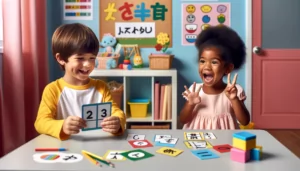Japanese culture is renowned for its depth, tradition, and wisdom. One of the most captivating aspects of this culture is the world of Japanese proverbs. These succinct, age-old sayings are a treasure trove of wisdom, offering insights into the Japanese way of thinking and the values that have shaped their society for centuries. In this article, we will delve into the fascinating realm of Japanese proverbs, exploring different topics and providing a plethora of examples.

✅ AI Essay Writer ✅ AI Detector ✅ Plagchecker ✅ Paraphraser
✅ Summarizer ✅ Citation Generator
Insights into Life’s Lessons in Japanese Proverbs
Japanese proverbs, also known as “Kotowaza,” are short, pithy sayings that encapsulate profound life lessons. These proverbs have been passed down through generations, offering guidance on various aspects of life. Let’s delve into some common topics and explore a selection of Japanese proverbs on each.
| Japanese Proverbs about Perseverance |
|---|
| “Nana korobi, ya oki” (七転び八起き) – Fall seven times, stand up eight. |
| “Kekkyoku wa chikara nari” (結局は力なり) – In the end, it’s all about strength. |
| “Ichi-go ichi-e” (一期一会) – One opportunity, one encounter. |
| “Shiranu ga hō ga shirī” (知らぬが仏) – Ignorance is bliss. |
| “Yatara to iuna” (やたらと云うな) – Don’t speak carelessly. |
| “Isogaba maware” (急がば回れ) – Haste makes waste. |
| “Kawazu ni wa mizu o sasu” (蛙には水を授け) – To give water to a frog. |
| “Hana yori dango” (花より団子) – Dumplings rather than flowers. |
| “Ki o tsukero” (気をつけろ) – Be cautious. |
| “Ishi no ue ni mo sannen” (石の上にも三年) – Even on a stone, for three years. |
These proverbs offer valuable lessons in perseverance, patience, and the importance of not giving up in the face of challenges. They reflect the enduring spirit of Japanese culture and its emphasis on resilience.
| Japanese Proverbs about Wisdom |
|---|
| “Senjō ni hōrō nashi” (千丈に放浪なし) – There is no roving at a thousand fathoms. |
| “Onna wa yōhō o shiru yō” (女は陽封を知るよう) – Women understand the sunshine best. |
| “Kawazu ni wa mizu o sasu” (蛙には水を授け) – To give water to a frog. |
| “Hana yori dango” (花より団子) – Dumplings rather than flowers. |
| “Kane wa tenka no mawarimono” (金は天下の回り者) – Money goes around the world. |
| “Mizu no kokoro” (水の心) – Mind like water. |
| “Koi no yokan” (恋の予感) – Premonition of love. |
| “Chiisai kawa mo oku no hara” (小さい川も奥の原) – Even small rivers have deep sources. |
| “Ware mo ku, ware mo oshieru” (我も食べ、我も教える) – I eat, and I teach. |
| “Ten wa warau” (天は笑う) – Heaven smiles. |
These proverbs reflect the wisdom of Japanese culture, offering insights into life, relationships, and the importance of understanding and adapting to the world around us.
| Japanese Proverbs about Patience |
|---|
| “Tori no su ni yoku nitsukimasu” (鳥の巣によく似つきます) – Birds of a feather flock together. |
| “Isogaba maware” (急がば回れ) – Haste makes waste. |
| “Jū-nin to-iro” (十人十色) – Ten people, ten colors. |
| “Saru mo ki kara ochiru” (猿も木から落ちる) – Even monkeys fall from trees. |
| “Kujira no shi no kioku ni arazu” (鯨の死の記憶に非ず) – Whales do not have memories of dying. |
| “Kame no ko mo sando made” (亀の子も三度まで) – Even a turtle’s child will bite three times. |
| “Mizu no iro wa hishaku no iro” (水の色は柄杓の色) – The color of water reflects the color of the dipper. |
| “Tabako o suttara kaze o hisome” (煙草を吸ったら風邪をひそめ) – After smoking a cigarette, hide your cold. |
| “Kari ōkami mizu ni susumu” (雁大神水に進む) – The wild goose deity advances into the water. |
| “Shichinin no samurai wa e o wasurenai” (七人の侍は絵を忘れない) – Seven samurai don’t forget a drawing. |
These proverbs highlight the value of patience and the wisdom of taking one’s time in various situations. They offer insights into the Japanese approach to patience and the importance of perseverance.
| Japanese Proverbs about Courage |
|---|
| “Shinu kawa ni nagasu” (死ぬ河に流す) – Throw it in the river you’re about to cross. |
| “Onore o shinjiru ga yoi” (己を信じるがよい) – It is good to believe in oneself. |
| “Hito no chikara ni narazu” (人の力にならず) – Unable to help others. |
| “Kaeru no ko wa kaeru” (蛙の子は蛙) – Like father, like son. |
| “Ki o tsukero” (気をつけろ) – Be cautious. |
| “Kawazu naku kawa no koe” (蛙鳴く川の声) – The river’s sound is the frog’s song. |
| “Ware mo ku, ware mo oshieru” (我も食べ、我も教える) – I eat, and I teach. |
| “Ishi no ue ni mo sannen” (石の上にも三年) – Even on a stone, for three years. |
| “Hōdō ni tatsu” (捕らぬ狸の皮算用) – Counting the skin of a tanuki you haven’t caught. |
| “Tsuki wa yami o terasu” (月は闇を照らす) – The moon lights up the darkness. |
These proverbs emphasize the importance of believing in oneself, being cautious, and facing challenges with courage. They reflect the Japanese approach to courage and the wisdom of taking action when needed.
Japanese Expressions Examples Relevant in Everyday Life
In addition to proverbs, Japanese culture is enriched with expressions that convey profound meanings. These idiomatic phrases often draw from nature, history, and daily life to offer insights and reflections.
Japanese Expressions about Simplicity:
- “Wabi-sabi” (侘寂) – Finding beauty in imperfection and transience.
- “Mono no aware” (物の哀れ) – The pathos of things.
- “Kintsugi” (金継ぎ) – Repairing broken pottery with gold.
- “Yūgen” (幽玄) – Profound grace and subtlety.
- “Iki” (粋) – Elegant simplicity.
Japanese Expressions about Gratitude
- “Itadakimasu” (いただきます) – A phrase of gratitude before eating.
- “Arigatou gozaimasu” (ありがとうございます) – Thank you very much.
- “Gokurosama deshita” (ご苦労さまでした) – Thank you for your hard work.
- “Otsukaresama deshita” (お疲れ様でした) – Thank you for your efforts.
- “Onegaishimasu” (お願いします) – Please, I request.
Japanese Expressions about Respect
- “Senpai” (先輩) – Senior or elder.
- “Kōhai” (後輩) – Junior or underclassman.
- “Sensei” (先生) – Teacher or mentor.
- “Sempai-kohai relationship” (先輩後輩関係) – Senior-junior hierarchy.
- “Reigi” (礼儀) – Respectful behavior.
Japanese Expressions encompass a wide range of emotions and values, from finding beauty in simplicity to expressing gratitude and respect in everyday life.
A Journey Through Linguistic Evolution
The Japanese language, known as “Nihongo,” has a rich history of evolution influenced by various factors over the centuries. Let’s take a linguistic journey through the development of the Japanese language.
Japanese language’s prehistory remains shrouded in mystery, with little known about its early origins. During the Heian period (794–1185), the Chinese language influenced Old Japanese. The late Middle Japanese (1185–1600) era brought significant changes to the language, bringing it closer to its modern form. European languages began influencing Japanese following Japan’s end of self-imposed isolation in 1853. Loanwords from European languages, known as “gairaigo,” increased significantly. The influence of foreign languages expanded Japan’s vocabulary and enriched its linguistic diversity.
Japanese sayings, or “Kotoba,” encompass a wide range of expressions that reflect cultural values and everyday wisdom. These sayings are deeply ingrained in Japanese society and provide insights into the Japanese way of life. These sayings, deeply rooted in Japanese culture, offer valuable lessons on mindfulness, simplicity, and the appreciation of fleeting moments.
Japanese proverbs, expressions, language, and sayings are integral to the tapestry of Japanese culture. They provide a window into the values, wisdom, and evolution of this fascinating society. Whether you seek guidance in perseverance, insights into linguistic history, or reflections on the simplicity of life, Japanese culture offers a wealth of knowledge through its proverbs and expressions. These timeless lessons continue to resonate across cultures and generations, reminding us of the enduring wisdom of Japan.
FAQ
Follow us on Reddit for more insights and updates.





Comments (0)
Welcome to A*Help comments!
We’re all about debate and discussion at A*Help.
We value the diverse opinions of users, so you may find points of view that you don’t agree with. And that’s cool. However, there are certain things we’re not OK with: attempts to manipulate our data in any way, for example, or the posting of discriminative, offensive, hateful, or disparaging material.